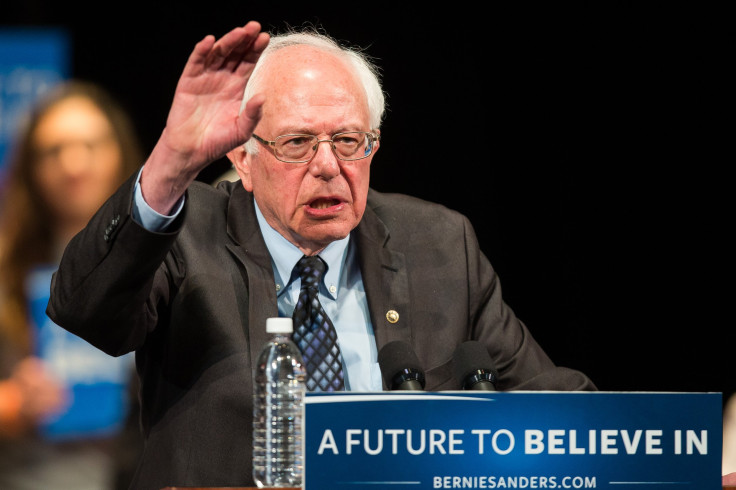Can Bernie Sanders Win Democratic Presidential Nomination? Hillary Clinton Leads Delegate Count, But There Is Time

UDPATE: March 9, 2016, 9:30 a.m. EST — Vermont Sen. Bernie Sanders pulled off a surprise upset in the Michigan Democratic presidential primary Tuesday night, extending the viability of his campaign to win the Party's nomination. But former Secretary of State Hillary Clinton, who beat Sanders overwhelmingly in Mississippi Tuesday, is still the favorite to win the nomination and leads Sanders with 1,134 delegates (including superdelegates) to Sanders' 499.
Original story — With his victory in the Maine caucuses, Vermont Sen. Bernie Sanders has now won in eight of the 19 states that have voted in the Democratic presidential race. He is trailing former Secretary of State Hillary Clinton in delegates and the number of contests won, but he and his campaign have repeatedly asserted that they are still in good shape to bring together a winning coalition before the Democratic National Convention in Philadelphia in July. But is that true?
The simple answer to that question is, yes, Sanders could still, at least in theory, win the Democratic nomination. The more complicated answer to that question — and one that is a bit more common to hear from 2016 presidential pundits — is that the path ahead doesn’t look great for the senator.
With his big win in the Maine caucuses Sunday, Sanders brings his total number of delegates (including superdelegates) up to 499. That’s far behind Clinton’s count of 1,130, which also includes superdelegates. Candidates need 2,383 delegates to win the nomination, and 3,136 are yet to be chosen.
“We are having a very, very good weekend,” Sanders said Saturday after winning in the Kansas and Nebraska contests. “We think we have a lot of momentum behind us as we continue forward.”
That there are 31 states left to vote certainly shows the race is far from over. Unlike the Republicans, the Democrats award their delegates on a proportional basis throughout the nominating season. It’s not at all clear that Sanders will be able to make up for some of his campaign’s perceived weaknesses at this point — including a notable lack of enthusiasm for his candidacy among black and Hispanic voters — but he theoretically still has time and is said to be expecting strong showings in big states down the line like New York and California, as well as Washington and Oregon.
Superdelegates could be the wild card. Unlike pledged delegates awarded by votes in primaries and caucuses, the superdelegates are party leaders and elected officials and can change their support at will. If Sanders does pick up enough momentum to make the race tight, the two candidates could find themselves headed into the July convention with those decisive delegate votes out of their control.
© Copyright IBTimes 2025. All rights reserved.






















